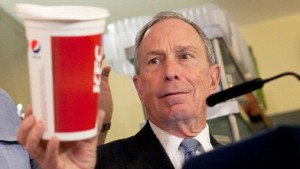The United States’ attempts to regulate food has, until recently, been based around the idea of banning or restricting sales. The most sensationalized of these efforts was former Mayor Bloomberg’s decision to ban the sale of soda in sizes over 16oz. This decision led to a national debate over soda consumption as well as prompting the soda industry to put millions into creating attack ads against the ban.
(Source ABC News) (Source Cornell University)
What seems clear from this is that regulation in the United States is particularly subject to public approval, approval which can be swayed by industries with vested interests in maintaing the status quo. When asked what they thought of the New York Court of Appeals striking down the soda ban the American Beverage Association (which boasts both Coke and Pepsi as members) had this to say, “(the ban) would have created an uneven playing field for thousands of small businesses in the city and limited New Yorkers’ freedom of choice.” More so that taxes, bans seem to be more likely to be tried in the court of popular opinion with roughly 42 percent of New Yorkers supported a ban, opposed to 53 percent that disagreed with it (Marist College). Compounding this is the disproportionate reaction of the American Beverage Association who funneled millions into swaying public opinion against the ban, who in turn pressured the NY Court of Appeals into repealing the ban.
Fast Facts
- Soda drinking has dropped in the past 9 years (in the United States)
- Soda drinking is being replaced by sugary fruit drinks which have roughly the same nutritional value
- The decrease in soda consumption has also led to increased bottled water consumption
- 6/10 people in New York City are obese
- soda is the top source of calories in teens (226/day)
- Soda consumption fell 6 percent in 2013
- This drop in consumption is assumed to be the result of nutritional education

